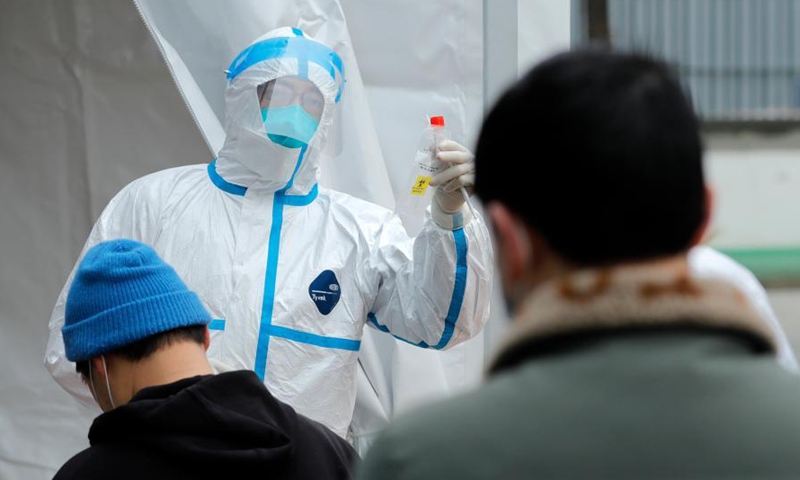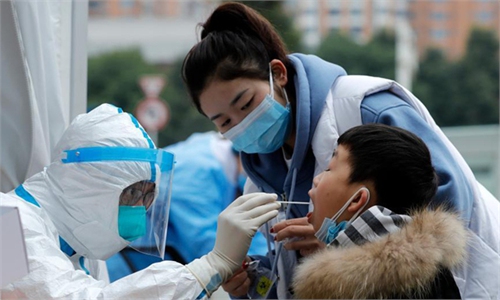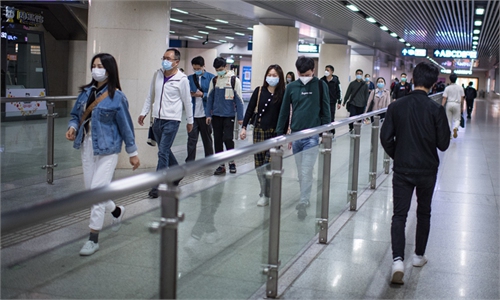
A medical staff member informs residents of the dos and don'ts for COVID-19 tests at the Pidu District Hospital of Traditional Chinese Medicine in Pidu District of Chengdu, capital of southwest China's Sichuan Province, Dec. 10, 2020. Chengdu reported zero increase in new domestically transmitted COVID-19 cases and asymptomatic cases from 9 p.m. Tuesday to 6 p.m. Wednesday, while citywide nucleic acid tests are continuing, local authorities said. At the Pidu District Hospital of Traditional Chinese Medicine, medical workers have been working 24 hours nonstop to conduct COVID-19 tests as quickly as possible. (Xinhua/Shen Bohan)
All medicines for the treatment of COVID-19 listed in the latest version of the national COVID-19 diagnosis and treatment plan are covered by the China's health insurance scheme, the National Health Security Administration announced on Monday.
The administration and China's Ministry of Human Resources and Social Security published the 2020 List of Medicines for National Basic Medical Insurance, Work-related Injury Insurance and Maternity Insurance, which will take effect on March 1, 2021.
The announcement said this adjustment attaches great importance to the provision of drugs related to the treatment of COVID-19. Ribavirin injections, Arbidol granules and other medications were added to the list. All the drugs listed in the latest version of the national COVID-19 diagnosis and treatment plan will be covered by the national medical insurance scheme.
Unlike the US and some other countries, Chinese people will have their expenses fully covered by medical insurance if they are confirmed or suspected COVID-19 cases.
The average medical expenses of each COVID-19 patient is 17,000 yuan ($2,601), media reported in March. Health insurance pays about 65 percent of the cost, and the rest is subsidized by the government, according to data disclosed by the National Health Security Administration.
According to policies outlined by the central government, for confirmed cases, after expenses are covered by medical insurance, the central financial subsidy covers the part that patients should pay themselves. For suspected cases, patients' medical expenses will also be covered by regional finances and the central government will provide subsidies accordingly.
Since the epidemic outbreak, local governments in China have issued plans which cover COVID-19 patients' treatment. Analysts said China's flexible finance system and the country's long-term investment in its health system have provided adequate medical expenses for treating COVID-19 patients.
But the vaccines for COVID-19 are not included in medical insurance.
In a reply to a National People's Congress deputy's proposals that would see the country's medical insurance covering the cost of COVID-19 vaccinations, China's Healthcare Security Administration said in October that the basic medical insurance funds cannot afford to provide free inoculations for everyone and discussions will be held with related authorities over the cost.
According to new rules governing China's basic medical insurance which took effect in July, preventive vaccines are not included in the coverage, so fees for vaccinations have to be paid through local government funds.
Global Times


